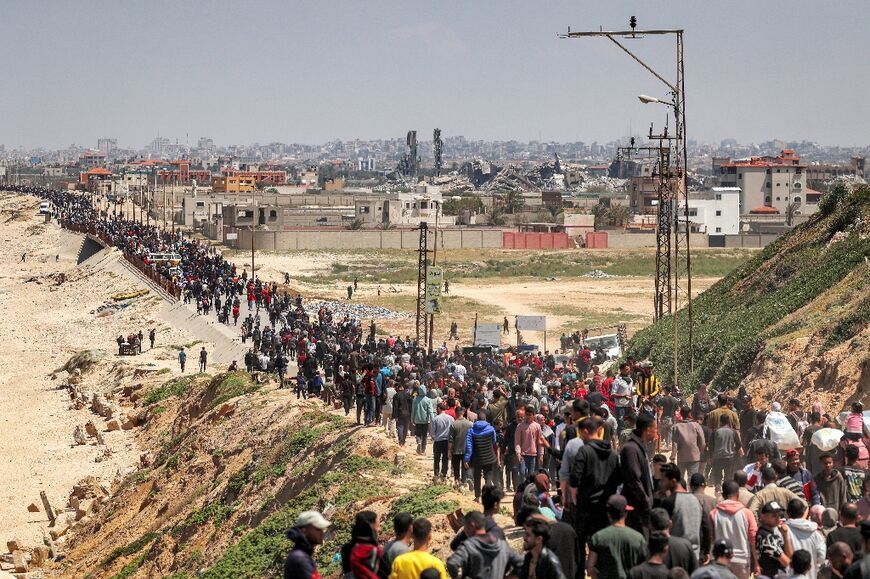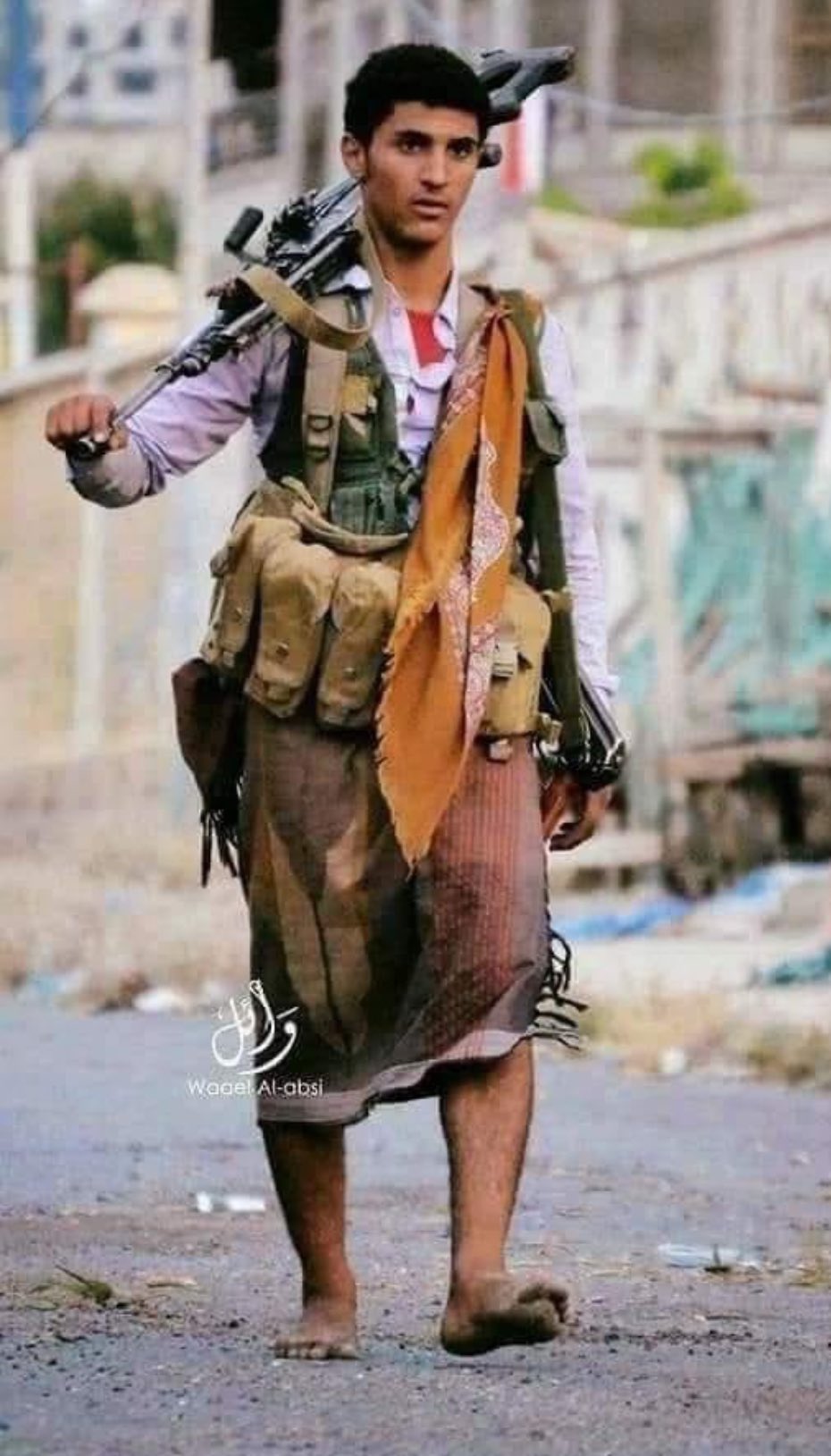
The illegal evacuation orders that the Israeli army has been enforcing in Deir al-Balah, in the central Gaza Strip, and Mawasi al-Qarara, west of Khan Yunis, in the southern Gaza Strip, have raised fear of additional forced displacement and an attack on an area in which nearly two million people are crammed.
The Israeli army has continued its pattern of issuing illegal evacuation orders in the Strip. One such order was issued recently and targets all civilians, including those who have already been forcibly displaced, who are living in Blocks 129 and 130 in the area of Al-Mahta and Deir al-Balah.
This area is home to 10s of thousands of people and is close to the Aqsa Martyrs Hospital. The Israeli orders, along with earlier ones that targeted residents of eastern and southern Deir al-Balah, show that Israel is continuing to expand its attack on Deir al-Balah, which is home to one million people, the majority of whom have previously been displaced to the centre of the Strip from northern or southern Gaza.
Nearly half of the people living in the Gaza Strip are currently living in Deir al-Balah. They had been forced to flee their homes and relocate there from locations across the entire Gaza Strip, particularly from northern Gaza and Rafah. Those sheltering in Deir al-Balah travelled there under Israeli bombing from the air, land, and sea, and Israel’s deliberate destruction of entire residential areas, hospitals, shelter centres, and public and private civilian facilities. Now, the military evacuation orders are asking residents of Deir al-Balah to move south, and targeting Deir al-Balah and the southern town of Al-Mawasi with illegal evacuation orders and bombing.
The Israeli army’s targeting of large areas within what it refers to as the “humanitarian zone” with illegal evictions, as has occurred in Mawasi al-Qarara and Deir al-Balah, suggests that Israel is trying to squeeze nearly two million people into an increasingly smaller area, until the population density reaches globally unprecedented levels, and displaced people are unable to even find a place to pitch their tents.
Given that Deir al-Balah is home to numerous national and international humanitarian organisations, the intensifying attack on the city raises the possibility that some humanitarian efforts may cease, putting Gaza Strip residents at further existential risk.
Since the Israeli army had previously declared that it had finished its military operations in the Gaza Strip, the expansion of operations towards Deir al-Balah and the increasing systematic destruction of Rafah’s residential areas as well as Khan Yunis’ Hamad City and Qarara areas is evidence of Israel’s ongoing quest to completely eradicate any Palestinian life there, whether now or in the future.
Israeli planes struck a number of Gaza City structures on Tuesday, including the Al-Jazeera Hotel, in spite of the fact that military operations had supposedly ended there and the majority of the area’s buildings had already been destroyed during ten months of incursions and aerial bombardment.
The Israeli army is still bombing makeshift shelters inside Gaza City schools. Just two days ago, it bombed the Mustafa Hafez School, which was home to thousands of displaced people. Twelve people were killed and numerous others were injured in the attack. Since the beginning of August, 11 schools have been bombed and destroyed, resulting in the deaths of displaced individuals.
There is no possible military need or justification for bombing and demolishing schools above the heads of the displaced people who are sheltering inside them, nor for expanding military operations in the aforementioned areas.
Observing the Israeli strategy of bombing followed by illegal evacuation orders shows that there is a deliberate policy in place to deny security to Palestinians across the entire Gaza Strip by temporarily depriving them of shelter or stability. This policy consists of continuing to bomb the entire Strip and concentrating on targeting shelter centres, such as UNRWA schools.
Israel’s systematic policy of targeting the civilian population of the Gaza Strip is prohibited by international humanitarian law. Yet, Israel continues to intensify its bombing of shelter and displacement centres, targeting areas specifically designated as humanitarian spaces, and denying these people any stability, even temporarily, thereby carrying out long-term forced displacement and demolishing all necessities of life as part of its genocide that has been ongoing since 7 October 2023.
The ongoing Israeli military operations in the Gaza Strip suggest that efforts are being made to maintain and strengthen the occupation’s hold on the besieged enclave. This is further demonstrated by the announcement made by Israeli Prime Minister Benjamin Netanyahu, who has said that he will not leave Philadelphi Corridor or Netzarim Axis despite enormous pressure to do so.
This is all taking place following a green light expressed in United States Secretary of State Anthony Blinken’s declaration that the US will not tolerate a long-term Israeli occupation of the Gaza Strip; in other words, the US has approved a short-term occupation without putting a time limit on it. Notably, the US approved $20 billion in arms sales to Israel earlier this month.
Israel’s military actions gravely breach international humanitarian law—particularly the principles of distinction, proportionality, and military necessity—and have a negative impact on all Palestinian civilians in the Gaza Strip.
As part of their international obligations, all nations must impose strong sanctions on Israel and halt all forms of military, political, and financial assistance. This includes immediately cutting off all arms transfers to Israel, including export permits and military aid; otherwise, these nations will be complicit in and partners in the Israeli crimes committed in the Gaza Strip, including the crime of genocide.
Without US cover, cooperation, and silence, the crime of genocide would not have continued and escalated. The majority of the world’s nations must accept their responsibilities and take concrete action to protect civilians, halt the mass killing, and stop the crime of genocide from being completed.
Since the crimes committed by Israel in the Gaza Strip are international crimes under the jurisdiction of the International Criminal Court, it is imperative that the Court move forward with its investigation into all crimes committed by Israel in the Gaza Strip, broaden its investigation into individual criminal responsibility for these crimes in order to include all those responsible, and issue arrest warrants against them.







